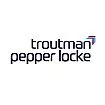On December 23, 2015, the Pennsylvania Supreme Court denied several tobacco companies' petition for appeal of a Commonwealth Court ruling that Pennsylvania is entitled to reinstatement of more than $125 million in funds under the 1998 Master Settlement Agreement (MSA) with the tobacco industry. The dispute arose over the MSA, which requires major tobacco manufacturers to make significant annual payments to the states. In order to ensure that the payments made by the settling companies do not create a windfall for non-settling tobacco companies, the MSA mandates that the settling tobacco companies could reduce or recoup the payments if those companies lost market share to the non-settling tobacco companies and if the payments were a "significant factor" contributing to the loss. The reduction, or adjustment, would be borne by all states.
However, the MSA has an exception that allows a state to avoid a payment reduction if that state "diligently enforced" a parallel statute which requires non-settlers to pay into an escrow fund according to the number of cigarettes sold in that state. In order to incentivize "diligent enforcement," the MSA provides that the non-diligent states would be solely responsible for the total available adjustment. Not only did this provision create an incentive for states to "diligently enforce" the escrow obligation, it also opened the door for litigation as to whether states were actually upholding their end of the agreement.
Arbitration
In 2010, an arbitration panel of three former federal judges was selected to determine whether the states diligently enforced the escrow obligations. Before a decision was reached by the panel, however, 22 states reached a settlement agreement with the participating tobacco companies. Under the terms of that settlement, the participating companies released the disputed payments from 2003 to 2012 to the states. In exchange, the settling states agreed to provide credits totaling $1.65 billion to the participating companies. The 22 settling states together made up an aggregate share of about 46% of the adjustment or reduction.
Interestingly, the settlement did not address how the remainder of any adjustment should be allocated among non-settling states like Pennsylvania. That issue was left for the arbitration panel to decide under the MSA. In September 2013, the panel determined that Pennsylvania, along with five other states, failed to diligently enforce its escrow statute because it had "a low collection rate [on escrow due], failed to adequately file and pursue lawsuits [against non-MSA companies], . . . [and]cavalierly declined to consider the impact of [certain non-MSA companies'] sales on its obligations under the MSA." Accordingly, the panel mandated that Pennsylvania and those other non-diligent states bear the full adjustment from the participating companies' 2003 payments. As a result of the panel's decision, Pennsylvania stood to lose over $240 million in funds from the participating tobacco companies.
Pennsylvania Appeals to its Local Court
The Commonwealth of Pennsylvania filed a motion in the Pennsylvania Court of Common Pleas asking the court to modify or vacate the arbitration panel's decision. The Philadelphia Court of Common Pleas upheld the arbitration panel's decision finding Pennsylvania nondiligent but reinstated Pennsylvania's $125 million reward.
On appeal, The Commonwealth Court ruled the Court of Common Pleas did not err in finding Pennsylvania nondiligent under the MSA.
Pennsylvania's High Court Rejects Petition to Appeal
In a two-sentence per curiam order, the Pennsylvania high court denied the tobacco companies' petition for allowance of appeal. Accordingly, the tobacco companies will be forced to pay the Commonwealth of Pennsylvania $125 million.
Although not binding on other states, the Pennsylvania court's decision may be treated as having a persuasive effect on the other states reviewing similar challenges to the arbitration panel's decision.
The content of this article is intended to provide a general guide to the subject matter. Specialist advice should be sought about your specific circumstances.


